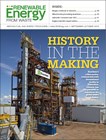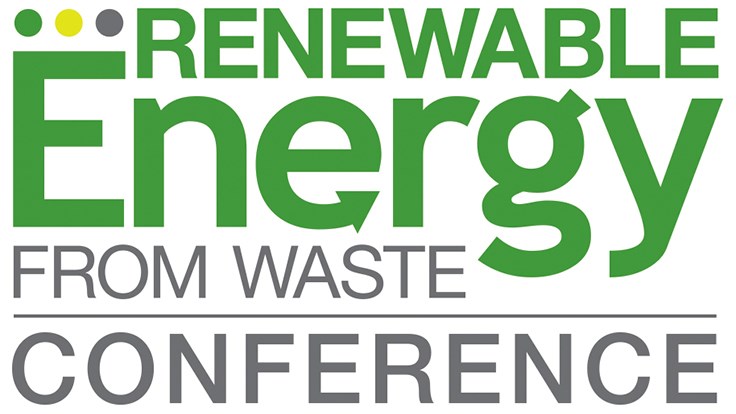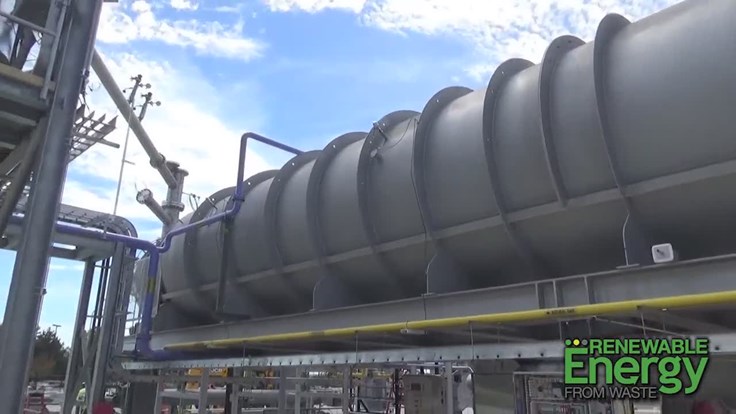Public policy in many states and major cities across the U.S. find themselves wanting greater levels of diversion of waste from landfills through more robust recycling programs and other infrastructure that can get their local integrated waste management systems closer to zero waste to landfill. In particular, major corporations have become more focused in being able to tout that their facilities have zero-waste-to-landfill (ZWL). To achieve ZWL, more separation, processing and conversion of waste currently destined for disposal needs to be implemented. Solid waste professionals are overwhelmed with options for converting nonrecycled municipal solid waste into more recyclables, bioproducts, and energy, including conventional and emerging technology options.
Kicking off the Renewable Energy from Waste Conference, Nov. 16-19 at the Caribe Royale in Orlando, Florida, is a preconference workshop featuring experts who can help navigate municipalities through this decision making process.
This half-day preconference workshop, titled “Planning for Success – Public Sector Planning and Implementation of Waste Conversion Projects” will kick off the REW Conference with an in-depth discussion and exchange on how to approach new projects to maximize return and address the many risks that need to be considered in structuring the project agreements.
The workshop will show public solid waste professionals how to cut through the noise and provide the technical and legal evaluation and project procurement approaches needed to implement a successful waste conversion project that can help your integrated solid waste management system get closer to zero waste to landfill.
The workshop facilitators and speakers have the engineering, technical, economic, financial, and legal expertise to address issues and questions participants may have concerning their own programs and projects. They will also delve into important steps such as feasibility studies, procurement approaches, financing, ownership, stakeholders’ involvement, implementation and maintenance.
Speakers include:
- Harvey Gershman, president of Gershman, Brickner & Bratton, Inc. (GBB), has been active in the solid waste management field as an adviser to government and industry for over 40 years, specializing in strategic guidance and infrastructure and services development assistance to solid waste service/system managers and owners. He has managed the preparation of many long-term plans, market studies, cost and independent feasibility analyses, technology reviews, contractor procurements, contracts development and negotiations, and project financing activities for a broad range of recycling, composting, solid waste management, waste-to-energy, and district energy projects. These projects have resulted in sustainable, efficient integrated waste management systems accepted by the community and its leadership.
- Rick Sapir, a partner at the law firm of Hawkins, Delafield & Wood, has focused his career on representing local governments in the procurement and negotiation of design-build, design-build-operate, and private management contracts for solid waste, energy, water, wastewater, and transportation facilities and services. He has developed expertise in all legal and business issues surrounding environmental facilities, including procurement, development, permitting, financing, construction, and operations. In the solid waste sector, he has served as procurement counsel on dozens of solid waste projects that have been constructed and are in operation, including waste-to-energy projects, composting projects, landfills, material recovery facilities, baling facilities, and landfill gas-to-energy projects.
- Mark Hammond has 40 years of experience in planning, design, construction and operation of integrated solid waste management systems. He has been with the Solid Waste Authority since 1983 and served as COO, Managing Director and now as Executive Director/CEO. During his tenure the Authority built an integrated solid waste management system consisting of six transfer stations, recovered materials processing facility, household hazardous waste drop-off facilities, in-vessel composting facility, ferrous processing facility, 2,000 ton-per-day RDF waste-to-energy facility, 3,000 ton-per-day mass burn waste-to-energy facility, and landfill. The Authority serves a population of 1.4 million residents and manages over 2 million tons of solid waste per year.
With gas and oil prices on the decline and renewable energy generation from solar and wind on the rise, the nation finds itself in an enviable position of having energy independence from foreign oil and less of need for renewable energy from waste. However, factoring in other considerations including the extension of the life of a landfill and thus avoiding potentially significantly increased costs of disposal following landfill closure, environmental benefits, sustainability advantages, as well as liability and risk avoidance may make the development of a waste conversion project attractive, even at this time. In addition, the revenues that can be derived from biofuels and/or biochemicals offer potential to offer attractive economics as compared to creating electrical power as the primary energy revenue stream.
Find out more about the preconference workshop as well as the main REW Conference by visiting www.REWConference.com.




